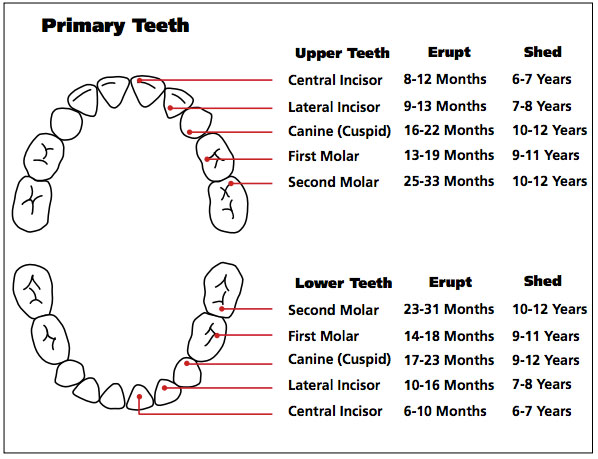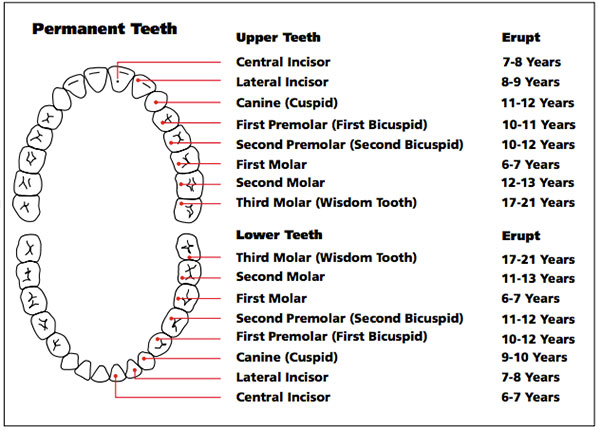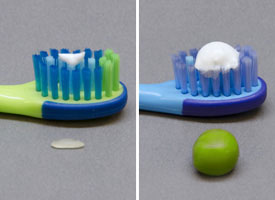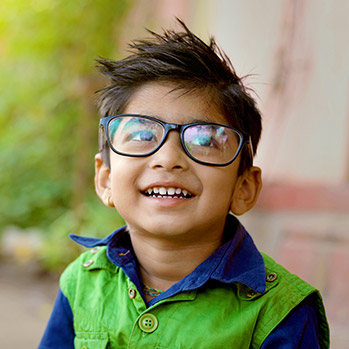Pediatric Dental FAQs
When should I schedule my child’s first visit to the dentist?
Our office, as well as the American Academy of Pediatrics (AAP), The American Dental Association (ADA), and the American Academy of Pediatric Dentistry (AAPD) all recommend that your baby has their first dental checkup by age one. Children who have a dental home are more likely to receive appropriate preventative and routine oral health care. As a service to our patients, we offer a COMPLIMENTARY well-baby checkup to infants up to 24 months of age!
How is a pediatric dentist different from other dentists?
All dental specialists (pediatric dentists, orthodontists, oral surgeons, and others) begin by completing dental school, then continue their education with several years of additional specialized training. Pediatric dentists have an extra two years of specialized training dedicated to the oral health of children from infancy through the teenage years. The very young, pre-teens, and teenagers all need different approaches in dealing with their experience in the dental environment, guiding their dental growth and development, and helping them avoid future dental problems. The pediatric dentist is best qualified to meet these needs. We enjoy working with children and our office is geared toward young patients, so you’ll find that our staff, our design, decorations, and activities all work together to provide an especially friendly and comfortable environment for children.
What happens during my child’s first visit to the dentist?
Your child’s first visit will be customized to their age and your concerns. We introduce your child to the dental environment in a slow and gentle, child-friendly way to build trust and confidence towards future visits. We work with each child according to their unique needs and background. Many parents are surprised at how well their child does and how they enjoy the experience!
How can I prepare my child for their first dental visit?
You can help make your child’s first visit to the dentist an enjoyable experience by maintaining a positive attitude. Meet our team and tour our office on our website! There are many wonderful books for young children discussing first visits to the dentist. Let your child know it is important to keep their teeth and gums healthy, and that the doctor will help them do that! Remember that our team at the Fun Kids Dentist has special training to help handle fears and anxieties and we do a great job helping children to feel at ease during their visits!
How often should my child visit the dentist?
The American Dental Association recommends dental checkups every six months. Depending on your child’s individual oral health needs, we may recommend more frequent visits.
If my child gets a cavity in a baby tooth, should it still be restored?
Primary or “baby” teeth are important for many reasons! They help children to chew, speak, and they act as a guide for developing permanent teeth when they are ready to erupt. Some baby teeth remain in the mouth until the child is 12 years old. Pain, infection of the teeth gums and jaws, can affect your child’s general health as well as growth and development. Early loss of a primary tooth can cause shifting and space loss leading to problems for the permanent teeth.
What causes tooth decay?
Dental plaque is a sticky, colorless “biofilm” of bacteria that forms on everyone’s teeth. When you eat, the sugars in food/beverages cause the bacteria in plaque to produce acids that attack tooth enamel. These acids attack the enamel on the exterior of the teeth, and over time and repeated attacks, the enamel breaks down and a cavity forms on the tooth. Enamel in baby teeth is thinner than permanent teeth thus is more susceptible to cavities.
When does my child get their first tooth?

When does my child lose their last tooth?

Should children use fluoride toothpaste?
For children younger than 3 years, parents and caregivers should begin brushing children’s teeth as soon as they begin to come into the mouth by using fluoride toothpaste in an amount no more than a smear or the size of a grain of rice.
 For children, 3 to 6 years of age, parents, and caregivers should dispense no more than a pea-sized amount of fluoride toothpaste.
For children, 3 to 6 years of age, parents, and caregivers should dispense no more than a pea-sized amount of fluoride toothpaste.
Teeth should be brushed thoroughly twice a day (morning and night) or as directed by a dentist or physician. Children’s brushing should be supervised to ensure that they use the appropriate amount of toothpaste.
At what age should my child stop sucking their pacifier or thumb?
Sucking is a natural reflex in infants and young children. They might use thumbs, fingers, pacifiers, or other objects because it makes them happy or provides a sense of security in difficult periods.
Thumb sucking that persists beyond the eruption of permanent teeth can cause problems with the proper growth of the mouth and tooth alignment. How intensely a child sucks on their chosen finger/object, will determine whether or not dental problems may result. Usually, children stop non-nutritive sucking habits between the ages of two and four.
School-aged children often stop due to maturity and social interaction. The use of a pacifier can be controlled and modified more easily than a finger habit. If you have concerns about non-nutritive sucking habits, consult our team.
A few suggestions to help your child “quit” their habit:
- Reward your child when they refrain from sucking their thumb
- There are many children’s books on this subject, that may help to incentivize, such as “Funny Teeth and Bunny Ears”
- TFKD has a trophy party for our patients that successfully join our "I quit club" when they discontinue their thumb habit or give up their pacifier. Ask us to talk with your child about an incentive chart and working towards their trophy!
- Putting a sock on the hand at night may prevent the habit if it primarily occurs at bedtime/while sleeping.
- If a child is motivated to discontinue, you may use “Mavala” or a similar topical product to help remind them not to suck their finger.
What do I do if my child has adult teeth coming in behind baby teeth?
This is a very common occurrence with children, usually the result of a lower, primary (baby) incisor tooth not falling out when the permanent tooth is coming in. In most cases, if the child starts wiggling the baby tooth, it will fall out on its own within a few months. If the baby tooth does not come out, or if it is causing an issue with your child’s comfort or eating, contact our team. Removal of this baby tooth is a very simple procedure. After the baby tooth is out, the natural force of the tongue and lips will help the permanent tooth to slide/drift into the proper position.
My child grinds their teeth-is this a problem?
Parents are often concerned about the nocturnal grinding of teeth(bruxism). Often the first indication is the noise created by the child grinding their teeth during sleep. There are many theories as to why children exhibit this nighttime behavior, however it is very common, and usually children outgrow this habit. We will look for signs of wear on the teeth if you have this concern, but most of the time grinding does not cause damage to the teeth. In the presence of acids such as an acidic diet or reflux issues, significant wear and/or chipping of the teeth can occur and result in the need for restorative care with fillings or crowns. If this does continue into adolescence and adulthood, a nightguard is usually fabricated.

